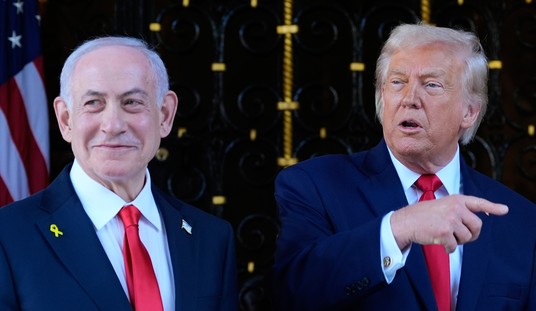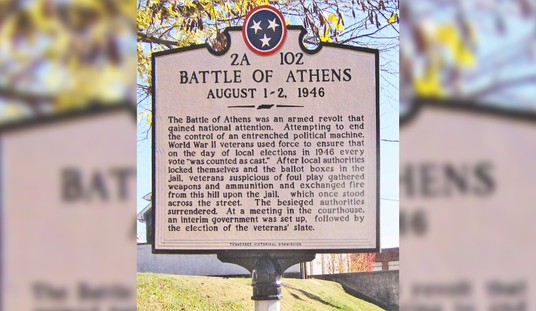The most important thing to remember about Syria’s chemical weapons arsenal is that they have failed to deter an attack upon its state. Bashar Assad is finding, as Saddam Hussein before him, that the possession or threat to use these weapons was not sufficient to prevent his fall. Do they now lie useless in Assad’s hands or do these infernal devices hold out the promise of saving him at the last moment?
Dina Esfandiary writing in the Diplomat says “logic dictates that if Assad truly fears for his survival, then the use of his most potent weapon may not be so far-fetched”. And yet with the regime apparently in the final stages of collapse US intelligence is only now beginning to detect signs that a “modest quantity” is being readied for use.
Why so little and why so late? Why such limited quantities? What is it that don’t we understand about this move? Esfandiary adds “a reckless assumption that Assad will use chemical weapons could get us in all sorts of trouble – remember what happened in Iraq? What do we actually know?”
That question divides into two parts: what do we actually know about the existence of the weapons themselves and b) what do we know about how these weapons will be employed. With regard to the weapons themselves the administration claims that unlike Bush, Obama will not be fooled.
The U.S. claims its intelligence over Syria is better: “The U.S. government has good visibility into the chemical weapons program and we continue to monitor it” said a U.S. Defense Department spokesperson. U.S. intelligence has indeed focused its attention on the chemical weapons program and it has gathered valuable intel from defectors such as Major General Adnan Silou, the former head of the chemical weapons program. But the information is far from complete. The more common perception on Syria, including from Western officials is that “there are so many unknowns, so little information available that it becomes almost impossible to know what the regime may or may not be doing.”
Obama ‘knows’ they are there. But a moment’s reflection will show that he can’t know precisely where they are. The Pentagon estimate that up to 75,000 troops will be needed to secure the material is indirectly a measure of the imprecision of American knowledge. It means that Syria will have to be searched with some thoroughness. Otherwise a far smaller number with very accurate knowledge could proceed direct to where these are stashed and secure and/or destroy them.
But it to Syrian doctrine we must turn to discover how it intended to use its chemical arsenal (if it truly does exist) in the first place. Jeffrey White of the Washington Institute suggests what we know is they were designed to be used a manner reminiscent of some long-ago Cold War Soviet battlefield, via artillery shells and bombs.
The regime could use chemical weapons in a variety of ways, from a limited or demonstration attack to large-scale offensive or defensive use to fundamentally change the military situation. At present, reports that the regime is weaponizing relatively small quantities of agent suggest the former. Limited CW use could be controlled better in terms of effects and visibility. The regime might also find it easier to explain away small-scale strikes as the work of “terrorists” or as a justifiable response to the military situation and the threat to the country.
One form of limited attack could be a strike against a specific military target, aimed at affecting a local but important tactical situation. Such an attack would also demonstrate that the regime was ready, willing, and able to carry out such actions.
The regime could also conduct small-scale strikes on civilian targets to intimidate the population or punish them for supporting the rebels. This would be an escalation from the regime’s routine use of explosives and incendiary weapons against civilians and could produce substantially greater casualties. It would undoubtedly have profound psychological effects on an essentially defenseless population.
As for broader CW use, the regime could employ such weapons to support ground offensives in key areas where its forces have been unable to achieve success via conventional tactics (e.g., around Maarrat al-Numan in Idlib province; in and around Aleppo city; in Deir al-Zour province, perhaps near Abu Kamal or Mayadin). It could use them to support defensive operations in places where rebel forces are on the offensive (e.g., the relatively remote Raqqa province) or have regime forces surrounded (as happened at the 46th Regiment base near Atareb in Aleppo province and the artillery fire base at Mayadin; in both cases, the positions fell to the rebels after prolonged siege and final assault). Using CW in close proximity to its own forces would be risky, but the military has some chemical defense equipment and training and might be able to provide a measure of protection.
The regime could also use persistent CW agents for area denial, striking lines of communication, shelters, and medical and food facilities to prevent rebels and civilians from using them. Finally, local military commanders operating independently of the government could decide to use CW on their own, whether out of revenge, frustration, fear, or other motivations. This would of course depend on access to munitions and delivery means, but in conditions where units are isolated or the chain of command is breaking down, such use is possible.
The use of the limited quantities of chemical weapons through shells and bombs won’t stop the FSA. But it will make them madder and probably result in reprisals against the top regime families and the Alawite in general. Thus, despite Obama’s dire warnings against their use against the Syrian population this is in fact the most irrational use for them. Too little has been weaponized in order to employ in their normal doctrinal manner.
The best use for a limited quantity of chemical weaponry is to use them in a manner they have not been designed for; to strike at the strategic lines of communications supporting the rebels. The deployment of Patriot missiles to Turkey illustrates that the real fear of the alliance is Assad may strike at Turkey (perhaps denying that it did) or Jordan in order to warn Ankara or Amman against using its territory as a transit point for weapons and men directed against Damascus. This would have a far greater effect than bombing a bunch of Syrian rabbles or terrorizing civilians.
A U.S.-led military exercise involving 12,000 troops from 17 different countries was held in Jordan in May, included planning for fighting in contaminated environments. Jordan and Turkey have been cooperating closely with the U.S. in carrying out other military exercises that involve securing chemical weapons in Syria or stopping them at their borders. Governmental task forces with direct input to the Prime Minister’s office have been set up in Turkey to analyze possible scenarios and has shared its findings with other regional states through the U.S. Israel has made it clear that any loss of government control over any of the stockpile, including intentionally passing them on to non-state actors in the region, would lead to massive military action. In fact, it has been reported that Israel has already sought Jordan’s approval for airstrikes on Syrian chemical weapons facilities. And only yesterday, NATO approved the deployment of Patriot missiles in Turkey (nominally) in response to the growing threat from Syria’s chemical weapons and non-chemical warheads, albeit, it should be noted that the missile defense system would be less effective against aircraft and useless against artillery-delivery.
The problem with attacking Turkey is it will bring in NATO and likely provoke the bombing of all suspected Syrian chemical weapons depots in order to prevent more gas from being loaded into shells or bombs. Therefore a strike against Turkey while logically possible is strategically barren.
One other possibility is a deep strike against the far enemies of the Assad regime: Qatr, the UAE, Saudi Arabia, Paris, London or New York, using a terrorist delivery system. Things like a hijacked airplane, a crop duster, the poisoning of an air conditioning system, or even a barge with gas dispensers. Such an attack would in the first place be perpetrated deniably. In the second place it would likely cause a political uproar in the target country and force into the open the operations against Syria that have been hidden under the rug.
Anyone who thinks it is impossible should recall that a much less capable organization, al-Qaeda, killed thousands of people in downtown New York and altered the course of American politics. This of all the options, is the one with the most bang for buck. Whether it will save Assad any more than it saved Osama Bin Laden is another question.
But the Syrian army, with its dependence on artillery shells and aerial bombs, is ill equipped to handle such a strike. For any deniability to be plausible, it has to be jobbed out. To whom? Moreover, Syria will have to solve the problem of effectively delivering a chemical weapon through a terror delivery system, something that has never been done before. But solving it would create a capability that Middle Eastern WMD owners have so far lacked: a strategic deterrence or retaliatory capability.
The Three Conjectures at Amazon Kindle for $1.99
Storming the Castle at Amazon Kindle for $3.99










Join the conversation as a VIP Member